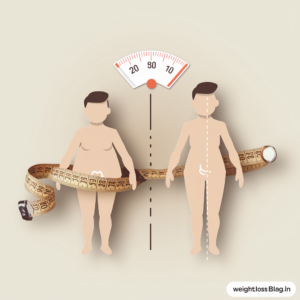The Blood Type Diet for Weight Loss: A Beginner’s Guide to Personalized Nutrition
Introduction to the Blood Type Diet
The Blood Type Diet is a unique approach to weight loss that tailors food choices and lifestyle recommendations to an individual’s specific blood type (A, B, AB, or O). Created by naturopathic physician Dr. Peter D’Adamo, the diet is based on the belief that your blood  type influences your body’s ability to digest certain foods, metabolize nutrients, and respond to stress. According to Dr. D’Adamo, eating according to your blood type can improve digestion, enhance metabolism, and lead to more effective weight loss.
type influences your body’s ability to digest certain foods, metabolize nutrients, and respond to stress. According to Dr. D’Adamo, eating according to your blood type can improve digestion, enhance metabolism, and lead to more effective weight loss.
Each blood type is thought to have evolved at a different point in human history, influencing dietary needs and physical characteristics. The Blood Type Diet suggests that by following a diet specific to your blood type, you can optimize your health, reduce inflammation, and achieve your weight loss goals. In this guide, we’ll explore how the Blood Type Diet works, the best food choices for each blood type, and tips for successful weight loss.
How the Blood Type Diet Works for Weight Loss
The Blood Type Diet works by tailoring your food choices to the specific characteristics of your blood type. The theory is that each blood type processes foods differently based on evolutionary factors, and certain foods may cause inflammation, slow metabolism, or interfere with digestion in individuals with a particular blood type. By avoiding foods that are incompatible with your blood type and focusing on those that promote better digestion and metabolism, you can enhance fat burning and achieve more effective weight loss.
Type O: The Hunter
Individuals with Type O blood are believed to thrive on a high-protein, low-carbohydrate diet, similar to the diet of early hunter-gatherers. The Blood Type Diet recommends that Type O individuals consume plenty of lean meats, fish, and vegetables, while avoiding grains, dairy, and legumes, which are thought to cause digestive issues and weight gain in this group.
Type A: The Agrarian
Type A individuals are said to benefit from a vegetarian or plant-based diet, as their blood type evolved with the advent of agriculture. The Blood Type Diet suggests that Type A individuals focus on whole grains, fruits, vegetables, legumes, and soy products while limiting or avoiding red meat and dairy products, which may be harder for them to digest and can contribute to weight gain.
Type B: The Nomad
Type B individuals are thought to have a more balanced digestive system that can handle a wide variety of foods, including meats, dairy, grains, and vegetables. However, the Blood Type Diet advises Type B individuals to avoid processed foods, corn, and wheat, as these may disrupt digestion and slow metabolism.
Type AB: The  Enigma
Enigma
As the most recent and rarest blood type, Type AB individuals are believed to have a mixed dietary profile, combining elements of both Type A and Type B. The Blood Type Diet recommends that Type AB individuals focus on a variety of fruits, vegetables, and lean proteins, while avoiding red meat, processed foods, and high-fat dairy products.
Key Components of the Blood Type Diet
The Blood Type Diet is built around tailoring food choices to your specific blood type to enhance digestion, reduce inflammation, and promote weight loss. Here are the key components of the diet for each blood type:
- Type O: High-protein, low-carb diet with an emphasis on lean meats, fish, and vegetables. Avoid grains, dairy, and legumes.
- Type A: Plant-based diet with a focus on fruits, vegetables, whole grains, and legumes. Avoid red meat and dairy.
- Type B: Balanced diet that includes meat, dairy, grains, and vegetables. Avoid corn, wheat, and processed foods.
- Type AB: Mixed diet with elements of both Type A and Type B, focusing on lean proteins, fruits, and vegetables. Avoid red meat and high-fat dairy.
Benefits of the Blood Type Diet for Weight Loss and Health
The Blood Type Diet offers several potential benefits for weight loss and overall health. Here’s how it can positively impact your body:
1. Personalized Nutrition
One of the key advantages of the Blood Type Diet is that it tailors your food choices to your specific biological makeup, which may help optimize digestion and metabolism. By eating foods that are compatible with your blood type, you may experience improved energy levels, better digestion, and more effective weight loss.
2. Reduces Inflammation
The Blood Type Diet emphasizes whole, natural foods and eliminates many  processed, inflammatory foods, such as refined grains, sugars, and unhealthy fats. By reducing inflammation, the diet may help improve metabolic health and support fat loss.
processed, inflammatory foods, such as refined grains, sugars, and unhealthy fats. By reducing inflammation, the diet may help improve metabolic health and support fat loss.
3. Encourages Whole Foods
The diet focuses on whole, nutrient-dense foods, including fruits, vegetables, lean proteins, and healthy fats. These foods are not only better for digestion and metabolism but also provide essential vitamins, minerals, and antioxidants that support overall health and well-being.
4. Promotes Long-Term Healthy Habits
Unlike many fad diets that rely on extreme calorie restriction or eliminating entire food groups, the Blood Type Diet encourages a balanced approach to eating that can be sustained over the long term. By focusing on foods that work best for your body, the diet promotes healthy, sustainable weight loss.
5. Reduces Food Sensitivities
Many individuals who follow the Blood Type Diet report improvements in digestion and reductions in food sensitivities. By avoiding foods that are incompatible with their blood type, they experience less bloating, gas, and discomfort, which can support weight loss and overall health.
Potential Drawbacks of the Blood Type Diet
While the Blood Type Diet offers several benefits, it’s important to consider potential challenges:
1. Lack of Scientific Evidence
One of the main criticisms of the Blood Type Diet is the lack of scientific evidence to support the theory that blood type influences dietary needs. While many individuals report positive results, more research is needed to validate the diet’s effectiveness.
2. May Be Restrictive
The Blood Type Diet eliminates certain food groups for each blood type, which may make it difficult to follow, especially in social situations or when dining out. Some individuals may find it challenging to give up foods they enjoy or are accustomed to eating.
3. Potential Nutrient Deficiencies
By restricting certain food groups, such as dairy or grains, some individuals may be at risk of nutrient deficiencies, particularly if they do not carefully plan their meals. It’s important to ensure that you’re getting enough essential nutrients, such as calcium, iron, and vitamin B12, through other food sources or supplements.
Tips for Success on the Blood Type Diet
To get the most out of the Blood Type Diet and achieve your weight loss goals, follow these practical tips:
1. Follow Your Blood Type Food List
The key to success on the Blood Type Diet is to adhere to the food list for your specific blood type. By focusing on the foods that are compatible with your blood type and avoiding those that may cause inflammation or digestive issues, you can optimize your metabolism and promote fat loss.
2. Plan Your Meals
Meal planning is essential for staying on track with the Blood Type Diet, especially since it may restrict certain food groups. Take time each week to plan your meals and snacks, focusing on whole, natural foods that align with your blood type.
3. Listen to Your Body
While the Blood Type Diet provides guidelines for what to eat based on your blood type, it’s important to listen to your body’s hunger and fullness cues. Pay attention to how different foods make you feel and adjust your diet as needed to support your weight loss goals.
4. Stay Hydrated
Drinking plenty of water is essential for digestion, metabolism, and overall health. Make sure to stay hydrated throughout the day to support your body’s natural detoxification processes and promote weight loss.
5. Consider Supplements if Needed
If you’re eliminating certain food groups on the Blood Type Diet, you may need to consider supplements to ensure you’re getting enough essential nutrients. Speak with a healthcare provider to determine if supplements like calcium, vitamin D, or B12 are necessary for your specific needs.
Scientific Evidence and Case Studies
Although scientific evidence supporting the Blood Type Diet is limited, many individuals report positive results from following the plan. Anecdotal evidence suggests that tailoring food choices to one’s blood type may improve digestion, boost energy levels, and promote weight loss.
A study published in the journal PLoS One found that individuals who followed a diet tailored to their blood type experienced improvements in metabolic health markers, such as blood pressure and cholesterol levels. However, more research is needed to fully understand the relationship between blood type and diet.
Who Should Try the Blood Type Diet?
The Blood Type Diet is a good option for individuals who:
- Are interested in personalized nutrition based on their blood type.
- Have experienced digestive issues or food sensitivities with other diets.
- Prefer a balanced, whole-foods approach to weight loss.
- Are willing to eliminate certain foods that may be incompatible with their blood type.
Who Should Avoid the Blood Type Diet?
The Blood Type Diet may not be suitable for individuals who:
- Prefer a more flexible or less restrictive eating plan.
- Have difficulty eliminating certain food groups, such as dairy or grains.
- Are looking for a diet with strong scientific backing.
Conclusion
The Blood Type Diet is a personalized approach to weight loss that tailors your food choices to your specific blood type. By focusing on foods that are compatible with your body’s unique biology, you can optimize digestion, reduce inflammation, and promote more effective fat loss. While the diet may not have strong scientific support, many individuals have found success by following its guidelines. With the right meal planning and commitment, the Blood Type Diet can help you achieve your weight loss goals and improve your overall health.